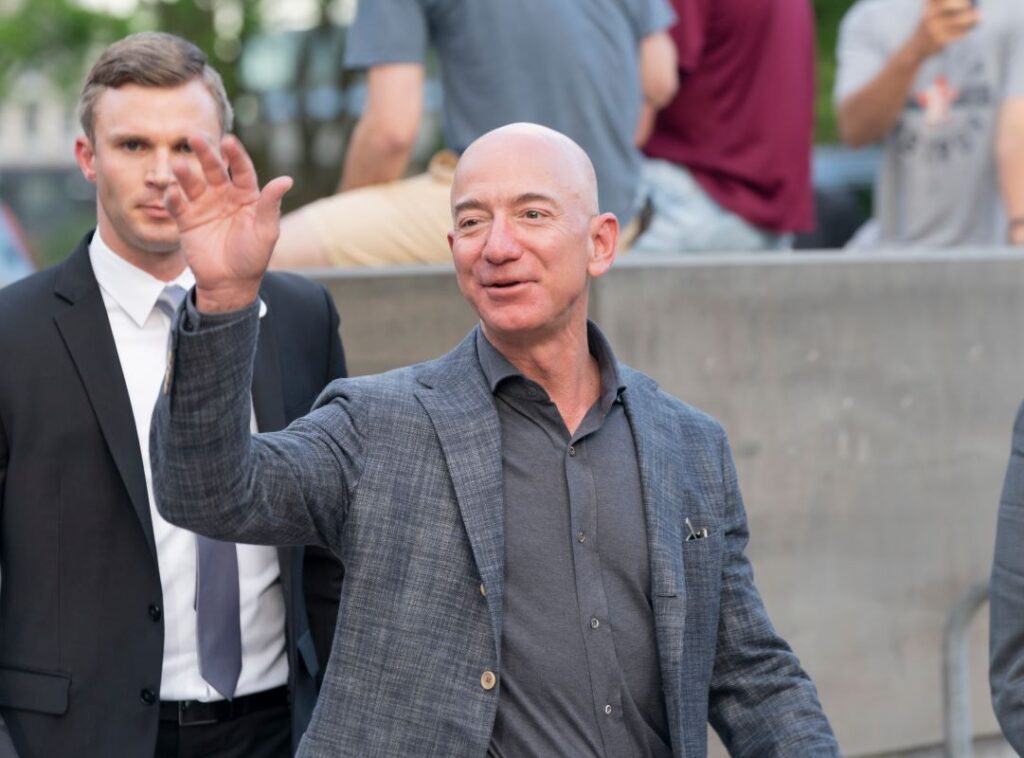In July 2023, a thought-provoking poll question emerged: “Were you excited when Jeff Bezos went into space?” This inquiry epitomizes a broader societal dialogue surrounding wealth, opportunity, and the ethical implications of space exploration within the context of a hyper-capitalist system. Jeff Bezos, as the world’s wealthiest individual, embarking on a space journey sparked varied reactions, reflecting underlying tensions and concerns about inequality and priorities.
Interpreting the Results
The poll results, drawing from a substantial pool of 7,137 respondents, paint a stark picture: a mere 10% conveyed excitement (equivalent to 721 votes), while an overwhelming 90% expressed indifference or disapproval (totaling 6,416 votes). This resounding dissent illuminates a profound societal shift, reflective of mounting skepticism towards billionaire-funded space ventures. Beyond merely reflecting disinterest in space exploration, these numbers underscore broader concerns about societal values and priorities.
SurveyBeta’s analysis delves deeper into the underlying sentiments revealed by these poll results. The overwhelming majority’s lack of enthusiasm towards Jeff Bezos’ spaceflight venture suggests a weariness with ostentatious displays of wealth and privilege. This sentiment resonates with broader societal conversations surrounding income inequality, corporate accountability, and the responsible allocation of resources. The disdain towards lavish space escapades amid pressing global challenges highlights a growing disillusionment with the unchecked accumulation of wealth and the perceived disconnect between billionaire extravagance and everyday struggles faced by ordinary people.
Moreover, the poll results hint at a shift in public perception regarding the purpose and ethics of space exploration. Historically viewed as a pursuit driven by scientific curiosity and collective advancement, spacefaring initiatives led by billionaires like Bezos and Branson are increasingly scrutinized through a lens of social responsibility and ethical stewardship. The spectacle of affluent individuals embarking on space joyrides amidst persistent social and environmental issues sparks debate about the equitable distribution of resources and the moral imperatives of technological progress.
The broader implications of these poll findings invite critical reflections on the societal narratives that shape public discourse. Beyond the allure of space exploration, the public response underscores a demand for accountability and a reevaluation of societal priorities. As humanity navigates the frontiers of space, it concurrently confronts profound questions about justice, equity, and the collective aspirations that define our shared future.
Debating Space Exploration and Social Responsibility
The public discourse surrounding Jeff Bezos’ spaceflight encapsulates broader ethical considerations about resource allocation and corporate responsibility. While space exploration has intrinsic scientific value, the juxtaposition of lavish space voyages against pressing societal needs, like healthcare and labor rights, invites critical scrutiny. Should the pursuit of space travel prioritize addressing terrestrial challenges and socio-economic disparities?
America’s Land of Opportunity: Balancing Success and Equity
The United States, historically celebrated as the land of opportunity, faces a reckoning with unprecedented wealth accumulation and income inequality. Jeff Bezos’ ascent to space, funded by Amazon’s pandemic-driven profits, highlights contrasting narratives of individual success and collective well-being. The poll outcome underscores broader questions about the limits of opportunity and the responsibilities of those at the pinnacle of wealth.
The Symbolism of Jeff Bezos’ Space Odyssey
Beyond personal aspirations, Jeff Bezos’ spaceflight symbolizes the broader context of corporate power and influence. Amazon’s dual image—portraying itself as a force for good while facing scrutiny over labor practices—adds complexity to the discussion. The billionaire space race, juxtaposed against urgent societal needs, underscores a clash of priorities and values in a world grappling with systemic challenges.
The Ego-Driven Space Race: A Spectacle of Wealth
The spectacle of space exploration, fueled by competition between Jeff Bezos and Richard Branson, evokes notions of ego and supremacy. The billionaire space race, while advancing technological frontiers, raises ethical questions about the allocation of resources and priorities. Does humanity benefit most from space tourism or from addressing pressing global challenges on Earth?
The Moral Imperatives of Space Investment
Conversations about space investment prompt moral dilemmas: should vast sums be directed towards interplanetary travel while basic needs remain unmet? The contrast between rocket launches and societal investments underscores divergent visions of progress and human advancement. Such debates challenge conventional notions of progress and highlight the ethical imperative of responsible innovation.
Conclusion: Toward Ethical Progress
In conclusion, the survey question about Jeff Bezos’ space journey serves as a microcosm of broader societal debates. It compels reflection on wealth, opportunity, and corporate accountability in an era defined by profound disparities. By engaging critically with space exploration and its societal implications, we navigate towards a more equitable and sustainable future where technological marvels align with human values and collective welfare.
Looking for more content like this? Explore our Articles Section and discover how technology is impacting surveys.


